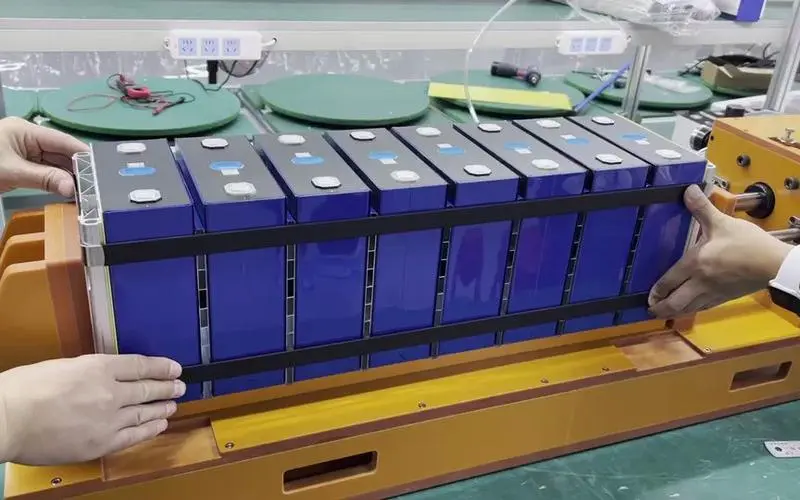 |
Welcome To Evlithium Best Store For Lithium Iron Phosphate (LiFePO4) Battery |
 |

Lithium iron phosphate (LiFePO4) batteries are taking the tech world by storm. Known for their safety, efficiency, and long lifespan, these batteries are becoming the go-to choice for many applications, from electric vehicles to renewable energy storage. But what exactly makes LiFePO4 batteries so special? Let's dive into the world of LiFePO4 lithium batteries and explore their features, benefits, and more.
The journey of lithium batteries began in the 1970s, with the development of the first lithium-ion (Li-ion) battery. Over the years, various improvements have been made, leading to the emergence of different types of lithium batteries, including the LiFePO4 battery. This advancement was primarily driven by the need for safer and more efficient energy storage solutions.
LiFePO4 stands for lithium iron phosphate, a chemical compound that forms the cathode material of these batteries. The basic structure of a LiFePO4 battery includes a lithium iron phosphate cathode, a graphite anode, and an electrolyte that facilitates the movement of lithium ions between the electrodes. This composition makes LiFePO4 batteries inherently stable and safe.
One of the standout features of LiFePO4 batteries is their safety. Unlike other lithium batteries, they are less prone to overheating and thermal runaway, which can lead to fires or explosions. This makes them a safer choice for various applications.
LiFePO4 batteries are known for their long lifespan. They can endure thousands of charge and discharge cycles without significant degradation, which means they can last up to 10 years or more with proper maintenance.
These batteries offer excellent performance with high discharge rates, allowing them to provide a consistent and reliable power supply. They are also highly efficient, with minimal energy loss during charging and discharging.
While LiFePO4 batteries have many benefits, they come at a higher initial cost compared to other lithium batteries. However, their long-term cost-effectiveness often offsets this initial investment.
LiFePO4 batteries have a lower energy density compared to other lithium batteries like Li-ion. This means they store less energy for a given size, which can be a drawback for applications where space and weight are critical.
LiFePO4 batteries are increasingly used in electric vehicles due to their safety, long lifespan, and reliable performance. They are especially popular in electric buses and trucks.
These batteries are ideal for renewable energy storage systems, such as solar and wind power, because of their durability and efficiency.
Although less common, LiFePO4 batteries are also used in some portable electronic devices, offering a safer and longer-lasting alternative to traditional batteries.
LiFePO4 batteries are safer and have a longer lifespan than traditional Li-ion batteries, but they have a lower energy density.
LiFePO4 batteries are more stable and safer than lithium polymer (Li-Po) batteries, but again, they have a lower energy density.
The production of LiFePO4 batteries is generally considered to be more environmentally friendly compared to other lithium batteries, due to the use of non-toxic and abundant materials.
LiFePO4 batteries are recyclable, and their non-toxic nature makes disposal easier and safer for the environment.
To maximize the lifespan of LiFePO4 batteries, it is important to follow proper charging practices, such as using the correct charger and avoiding overcharging.
Regular maintenance, including periodic checks and proper storage conditions, can help extend the life of these batteries.
While LiFePO4 batteries are safer than other lithium batteries, improper handling can still lead to issues such as short circuits and overcharging.
Adhering to established safety protocols and standards is crucial to ensure the safe use of LiFePO4 batteries in any application.
Ongoing research and development are expected to bring further improvements in the performance and efficiency of LiFePO4 batteries.
The demand for LiFePO4 batteries is expected to grow, driven by their increasing use in electric vehicles and renewable energy storage systems.
When choosing a battery, consider factors such as safety, lifespan, cost, and energy density to find the best fit for your needs.
Different applications have different requirements, so it's important to select a battery that meets the specific demands of your application.
Proper installation is key to ensuring the safe and efficient operation of LiFePO4 batteries. This includes using the right equipment and following manufacturer guidelines.
Integrating LiFePO4 batteries with existing systems may require some adjustments, but their compatibility and flexibility make this process relatively straightforward.
The initial cost of LiFePO4 batteries can be higher than other types, but their long lifespan and low maintenance costs make them a cost-effective choice in the long run.
Over time, the durability and efficiency of LiFePO4 batteries can lead to significant savings, making them a smart investment for many applications.
LiFePO4 lithium batteries are a reliable, safe, and efficient energy storage solution with a wide range of applications. Their long lifespan, excellent performance, and environmental benefits make them an attractive choice for both personal and commercial use. As technology continues to advance, we can expect even greater improvements in LiFePO4 battery performance and accessibility.
LiFePO4 batteries are less prone to overheating and thermal runaway, making them a safer option compared to other lithium batteries.
With proper maintenance, LiFePO4 batteries can last up to 10 years or more, thanks to their ability to endure thousands of charge and discharge cycles.
Yes, LiFePO4 batteries are recyclable, and their non-toxic nature makes recycling easier and safer for the environment.
LiFePO4 batteries are ideal for electric vehicles, renewable energy storage, and some portable electronic devices.
Due to their recyclable nature, it is best to take LiFePO4 batteries to a recycling facility that can handle battery materials safely.
Edit by paco
All Rights reserved © 2025 Evlithium Limited